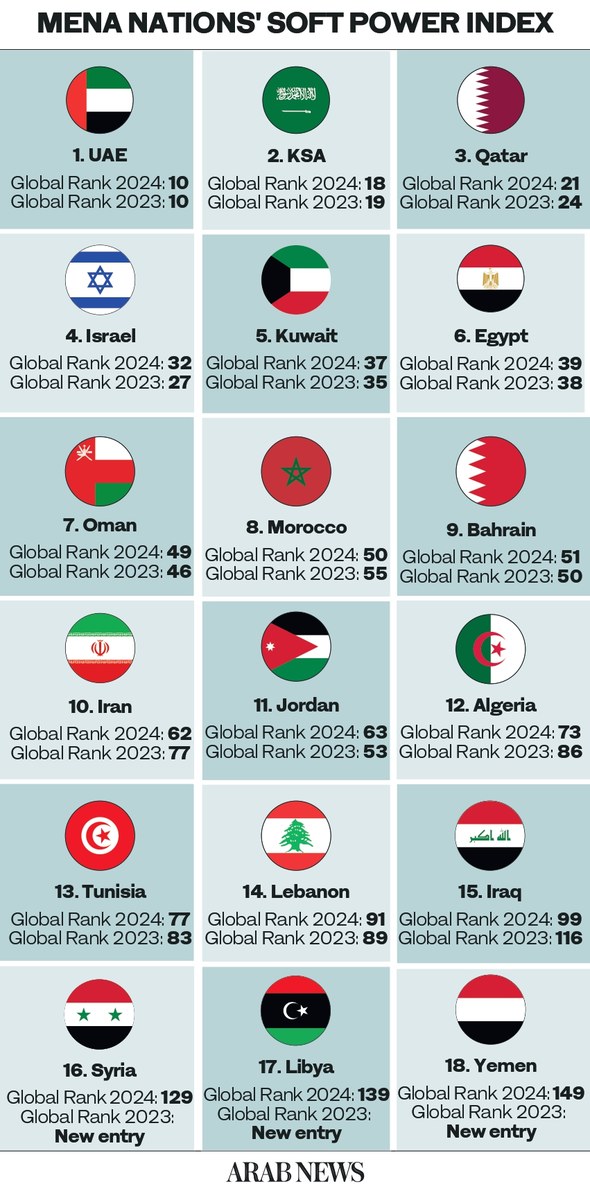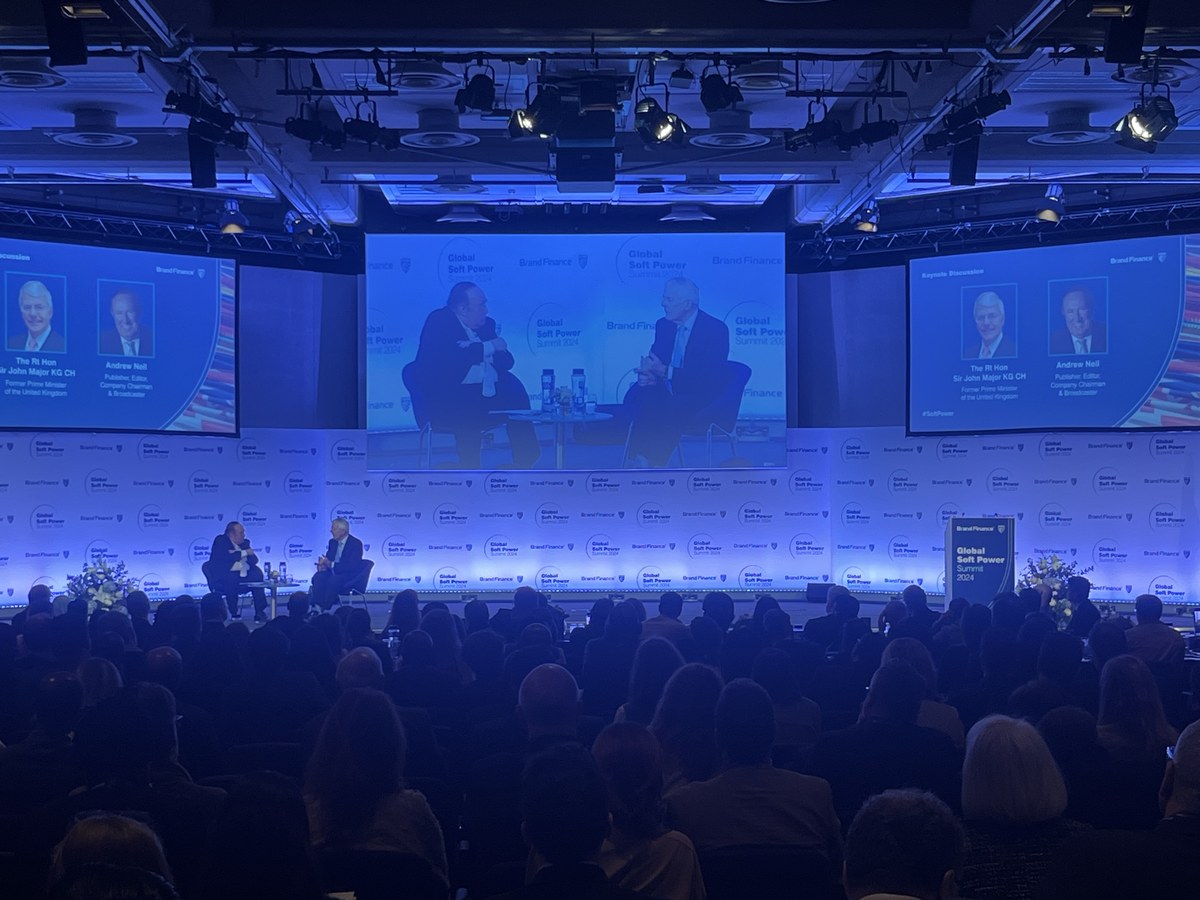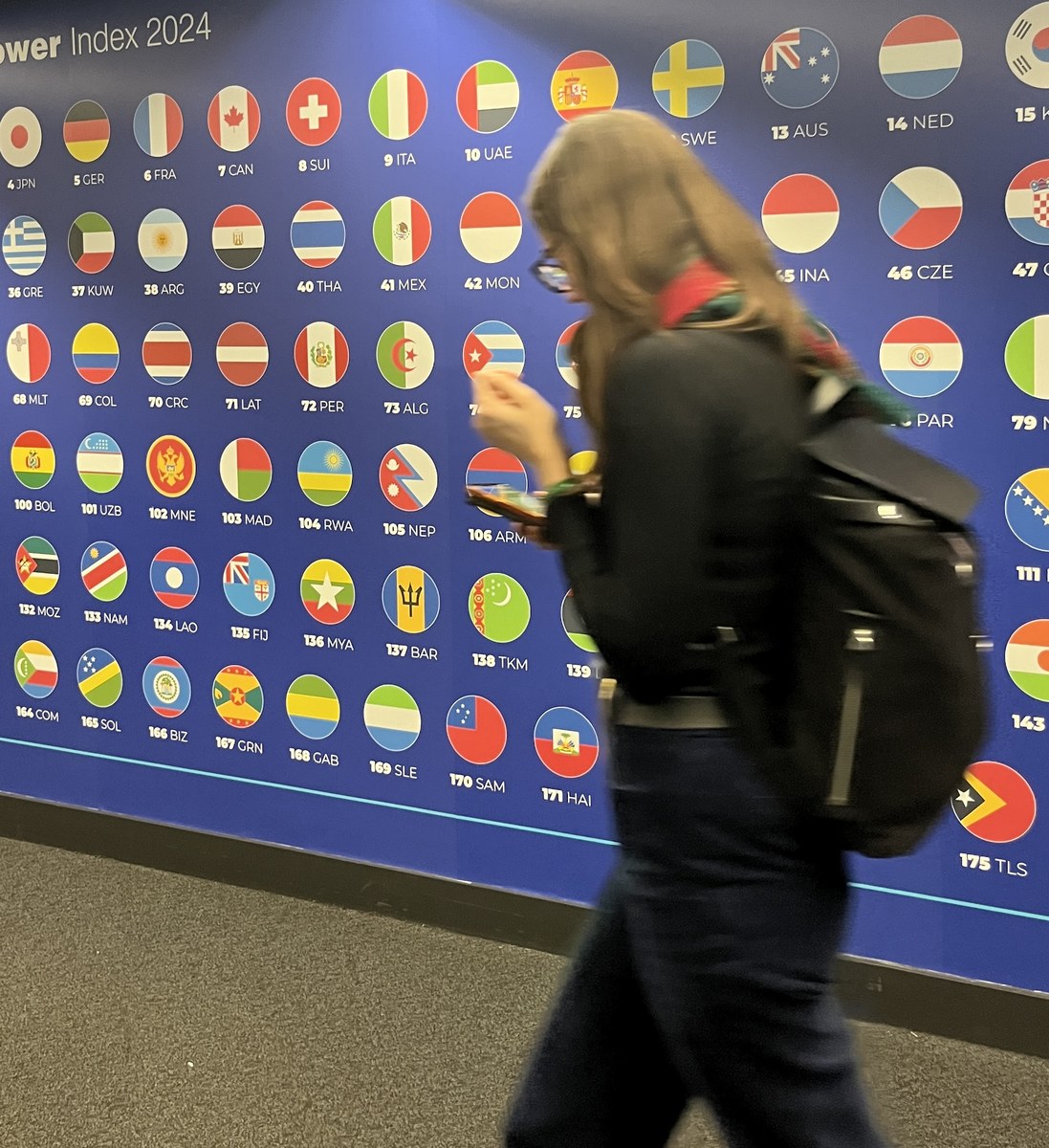LONDON: The latest findings from Brand Finance’s Global Soft Power Index, one of the world’s leading brand evaluation consultancies, unveiled key shifts in the global soft power landscape, reflecting the intricate dynamics of the regional context.
While Saudi Arabia, the UAE, and Qatar have solidified their positions, attention has turned to Israel’s ranking decline and the repercussions of the Gaza conflict.
Israel experienced a noticeable decline in its soft power standing, a trend exacerbated by the recent conflict in Gaza.
“As the Anholt Nation Brands Index has shown since 2005, public opinion does not tolerate conflict,” Simon Anholt, policy advisor, author and one of the world’s leading authorities on national image, told Arab News.
“Conflict harms the images of all parties involved, whether perceived as aggressor or victim, and the effect lingers. Current events in Gaza will likely harm the images of both Israel and Palestine for years to come (even though Palestine does not feature in the index), reducing their ability to attract trade, talent, tourists and investment.”

However, Brand Finance CEO David Haigh highlighted that the full impact of the war on Israel’s performance in this year’s index remains unclear.
“Overall, Israel has dropped fairly obviously, but (since the completion of the survey), things have become a lot worse not only in what Israel is doing, but also the reaction globally,” Haigh told Arab News, suggesting that the true impact may be seen in next year’s report.
He emphasized a shift in global sentiment against Israel, both in the short and long term, requiring “substantial” and “real” changes for image improvement.
“If you don’t do that, whatever you’re doing is just propaganda,” he added.
The survey, which offers “a comprehensive evaluation of nations’ presence, reputation, and global impact” deriving from a range of metrics, was conducted between mid-September and early November, showing a split in results before and after the war.
These metrics encompass familiarity, influence, reputation, and perception. Perception is based on eight pillars: business and trade, governance, international relations, culture and heritage, media and communication, education and science, people and values, and sustainable future.
Soft power, a concept coined by political scientist Joseph Nye in the 1990s, denotes a nation’s ability to achieve desired outcomes through persuasion rather than coercion or financial incentives. It emphasizes appealing to countries instead of coercing them, in contrast to the traditional reliance on military and economic power.
According to the latest edition of the report, the UAE, Saudi Arabia, and Qatar have surged ahead in the rankings of the most influential soft power nations, outpacing other countries worldwide.
“Nations such as the Emirates, Saudi Arabia, and Qatar have not only ascended in the ranks of global perception but are weaving the fabric of their generous hospitality, innovative achievements, and peace-building initiatives into the tapestry of international diplomacy,” Haigh said, noting how this continued investment could signal the “dawn of a new era, where dialogue and collaboration are the cornerstones of the global order.”

Benefiting from robust oil demand and substantial investments in sports and tourism, the Kingdom achieved a score of 56 out of 100 index points, marking a 4.7-point increase from the previous year and surpassing Denmark.
Similarly, the UAE and Qatar have seen their scores rise due to their resilient economies and the successful hosting of high-profile events like Expo 2020 and COP28 in Dubai and the 2022 FIFA World Cup in Qatar.
The UAE also received a 10/10 score for “Strong and stable economy,” ranking first in that category, and scored highly for “Future growth potential” and “Generosity.”
Haigh said: “Saudi Arabia is very similar. Both have been investing heavily.” He emphasized how despite economic and political challenges, these factors have emerged as key drivers of both “Reputation” and “Influence.”
However, he pointed out that Gulf countries still have room for improvement in the aspect of “Familiarity,” an area where the entire region has historically lagged behind, and “Friendly people,” an aspect that the Brand Finance CEO attributes to high costs associated with visiting these countries and, thus, not being able to interact directly with their cultures.
“Although increasing numbers of people are going there on holidays, the exposure to the actual Emiratis (and Gulf populations at large) is quite low,” Haigh said, arguing that regular interactions are essential for people around the globe to understand “whether you’re friendly or not.”
The findings of the report published annually by Brand Finance were discussed by soft-power experts, researchers and government delegates at the Queen Elizabeth II Centre in London on Thursday.
This year’s survey involved 170,000 respondents worldwide and an expanded ranking covering all 193 UN member states.
On a global scale, the US and the UK lead as the most influential soft power nations, with China ranking third, surpassing Japan and Germany, which hold the fourth and fifth positions, respectively.

Speaking to Arab News, Courtney Fingar, FDI consultant, journalist, and commentator on international investment trends, also addressed the potential economic implications of the Gaza conflict spreading beyond current borders.
“The war spilling (over) and escalating beyond the current borders is not good news for anyone in the region, but (also) not for the world.”
Recognizing the improved resilience of Gulf markets due to diversification efforts, Fingar cautioned against volatility risks, highlighting investors’ prioritization of security, a trend corroborated by the report.
She observed that the challenge for Gulf economies lies in “translating that attention and that energy into tangible investments,” Fingar said.
Saudi Arabia, alongside other nations, has prioritized economic diversification as a cornerstone of its Vision 2030. Central to this vision is the Kingdom’s effort to attract investment across various sectors, notably sports and tourism.
Florian Kaefer, founder and editor of The Place Brand Observer, a platform focusing on country brand reputation, emphasized Saudi Arabia’s significant strides in rebranding itself as a sustainable tourist destination.
Citing projects like Red Sea Global and AlUla, Kaefer highlighted the Kingdom’s shift toward a narrative imbued with purpose.
“Tourism, if it’s done well, like in terms of regenerative development — an approach that focuses on supporting local communities and creating positive relationships that will benefit society and the environment — has the potential to emphasize the power of a country,” he remarked.
Kaefer pointed out the transformative impact of high-profile events like the World Expo, to be hosted by Riyadh in 2030, in reshaping perceptions and benefiting countries striving to establish themselves as hubs of sustainability and regeneration.
“The image of Dubai has changed over the last 10 years quite a bit. I think Saudi Arabia is going to follow that path, which is smart regenerative development, sustainability,” Kaefer noted, underscoring the importance for the Kingdom to “stay true” to its promises of regeneration and sustainability, as this will enhance its reception and popularity both globally and domestically.

Apart from the UAE, Saudi Arabia, Qatar, and Israel, this year’s Global Soft Power Index also involved 14 other Middle East and North African nations.
Kuwait, Egypt, and Oman secured ranks 37, 39, and 49, respectively, followed closely by Morocco at 50, Bahrain at 51, and Iran at 62. Jordan, Algeria, Tunisia, and Lebanon followed suit, securing ranks 63, 73, 77, and 91, respectively.
Iraq made a notable return to the top 100, securing the 99th position, while new entries like Syria (129th), Libya (139th), and Yemen (149th) also made their debut in the index.





























